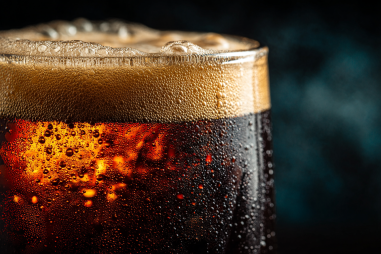Czech Dark Lager has been cherished worldwide for its rich flavor, smooth texture, and deep amber to dark brown hues. While beer enthusiasts primarily appreciate this style for its distinctive taste and cultural heritage, there’s growing curiosity about whether these traditional brews offer any health benefits. It turns out that moderate consumption of Czech Dark Lager can have some positive nutritional and cardiovascular effects, thanks to its unique composition. Let’s dive into the nutritional aspects, responsible drinking guidelines, and myths surrounding the health impacts of this beloved beer style.
Overview of Nutritional Content in Czech Dark Lager
Czech Dark Lagers typically contain a notable blend of ingredients that influence their nutritional profile. Made from malted barley, water, hops, and yeast, these beers are richer in certain nutrients compared to lighter beer styles. On average, a 12-ounce (355 ml) serving of Czech Dark Lager contains approximately 150-180 calories, with modest amounts of carbohydrates and proteins derived primarily from malted grains.
While alcohol contributes to caloric content, the malt imparts additional nutritional elements, including traces of B vitamins and minerals such as potassium, magnesium, and selenium. These minerals play essential roles in various bodily functions, including muscle contraction and antioxidant enzyme activity. Compared with pale lagers or light beers, Czech Dark Lager generally contains higher malt content, which means more residual sugars and complex carbohydrates, contributing to a slightly fuller nutrient profile.
Antioxidants and Vitamins Found in Dark Beer
One of the standout qualities of Czech Dark Lager is its richness in antioxidants. The darker malt used in brewing undergoes roasting or kilning processes that create beneficial antioxidant compounds, such as phenols and flavonoids. These antioxidants help neutralize harmful free radicals in the body, potentially reducing oxidative stress and lowering the risk of chronic diseases like diabetes and certain cancers.
The presence of B vitamins, especially niacin (B3), riboflavin (B2), and folate (B9), also adds value to moderate beer consumption. These vitamins support energy metabolism, brain function, and red blood cell formation. Although beer should never replace nutrient-dense food sources, the vitamins and antioxidants found in Czech Dark Lager may complement a balanced diet when enjoyed responsibly.
Potential Cardiovascular Benefits
Research suggests that moderate beer consumption, including darker varieties like Czech Dark Lager, could contribute to heart health. Some studies have associated moderate alcohol intake with increased levels of high-density lipoprotein (HDL), often referred to as “good cholesterol.” HDL helps transport cholesterol away from arteries and toward the liver for elimination, potentially reducing the risk of cardiovascular disease.
Moreover, the polyphenols present in dark beers have been linked to improved endothelial function and reduced inflammation—both crucial factors in maintaining healthy blood vessels. However, it’s important to note that these benefits are generally observed with moderate consumption, roughly one drink per day for women and up to two drinks for men, as excessive alcohol intake can have adverse health effects.
Moderation and Responsible Consumption
While Czech Dark Lager offers enticing flavor and some health perks, moderation remains key. Excessive drinking can lead to serious health problems, including liver disease, increased cancer risk, and negative cardiovascular outcomes. Drinking responsibly means understanding one’s limits and prioritizing quality over quantity.
It’s also wise to avoid drinking on an empty stomach and to stay hydrated with water alongside beer to mitigate dehydration. For those on medications or with certain health conditions, consulting a healthcare provider before consuming alcohol is crucial.
Comparing with Other Beer Styles
How does Czech Dark Lager stack up against other beer varieties when it comes to health benefits? Generally, darker beers contain higher antioxidant levels than lighter lagers and pilsners due to their malt composition and brewing process. The roasting of malt releases more polyphenols, which intensify antioxidant content.
However, stouts and porters, which are also dark beers, may have even stronger concentrations of these compounds due to the use of roasted barley and specialty malts. Conversely, light beers, while lower in calories, may offer fewer nutritional benefits beyond hydration and minimal vitamins.
Ultimately, the choice between beer styles depends on personal preference and health goals. Czech Dark Lager offers a balanced option with moderate alcohol content, nutritional value, and flavor depth.
Common Myths vs. Facts About Beer Health
There are many popular beliefs about beer and health — some true, others more fiction than reality. Here are a few myths and clarifications to keep in mind:
- Myth: Beer is fattening and always leads to weight gain.
Fact: While beer contains calories, moderate consumption as part of a balanced diet does not automatically cause weight gain. Excess calories from any source, not just beer, contribute to weight changes. - Myth: Dark beers are bad for your health due to high sugar content.
Fact: Dark beers like Czech Dark Lager may contain slightly more residual sugars but also provide antioxidants and vitamins that can have positive effects. - Myth: Drinking beer can improve longevity.
Fact: Moderate alcohol consumption has been linked to some health benefits, but these must be weighed carefully against risks. Overconsumption reduces life expectancy. - Myth: All alcohol consumption is harmful.
Fact: Moderate intake, especially of certain beverages like red wine and dark beer, may offer protective cardiovascular benefits when consumed responsibly.
Expert Recommendations for Beer and Health
Nutritionists and medical experts highlight moderation as the cornerstone of any health-related benefits from beer. The generally accepted guidelines recommend up to one standard drink per day for women and two for men. One standard drink typically equals roughly 12 ounces of beer at about 5% alcohol by volume, which aligns well with many Czech Dark Lagers.
Experts also stress the importance of pairing beer consumption with a healthy diet rich in fruits, vegetables, lean proteins, and whole grains. Regular exercise, adequate sleep, and avoiding smoking complement a lifestyle where moderate beer enjoyment can be a safe and pleasurable experience.
For individuals with specific health conditions, pregnant women, or those taking medication, abstaining from alcohol is the safest advice. Always consult your healthcare provider if uncertain about the role of beer in your health regimen.
In summary, Czech Dark Lager is more than just a delicious traditional beer — it carries nutritional properties and antioxidants that may contribute to moderate health benefits, particularly regarding heart health. Embracing responsible drinking habits ensures you can enjoy this flavorful brew while minimizing risks, separating fact from fiction when it comes to beer and wellbeing.







